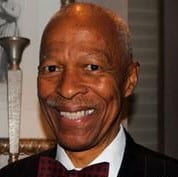National Security Lecture Series at DMGS
The Daniel Morgan Graduate School Lecture Series is specifically designed to bring together speakers with divergent opinions on national security with the goal of enabling the public to engage in robust and informed discussions. It has hosted some of the most distinguished and influential leaders, thinkers, and practitioners of the national security community. These members of the national security community have provided our students, faculty, and guests with first-rate analysis of some of the most pressing challenges of our time. Daniel Morgan Graduate School will continue to host speakers who can help prepare the next generation of leaders, scholars and, practitioners to develop actionable solutions to global and domestic security challenges.
Summary:
On September 12, 2018, during an event hosted by Daniel Morgan Graduate School, Dr. Raymond Tanter, Professor Emeritus at the University of Michigan and former senior member on the Middle East Desk of the National Security Council, presented his views on opposition to the Iranian regime and how the West can facilitate political change in Iran. The context for his discussion was the nuclear agreement and the foreign policy of the Obama and Trump Administrations.
According to Dr. Tanter, “Expansion and acceleration of protests in Iran constitute a crisis for the regime and an opportunity to leverage people’s resentment against the Tehran government. It is critical to find a way to accelerate regime change by Iranians.” The peaceful overthrow of the regime is inevitable in Dr. Tanter’s view. Comparing the demonstrations in Iran which began in 2017 to the 1979 demonstrations, which led to the Islamic Revolution, he concludes that Iranian protesters have turned the tide against the Iranian government. Dr. Tanter proposes that the West must take steps to ensure that Iranians receive free and secure internet access. Congress should pass the Iran Nuclear Agreement Review Act. Further, President Trump should make overtures to the National Council of Resistance of Iran – the opposition group acknowledge by the Tehran government – in order to build a stronger relationship with them.
During the Q&A session following his presentation, Dr. Tanter took the time to engage with various members of the audience in a healthy discussion of the issues he raised. After the event, attendees were able to network with various professionals at a special reception hosted in the main lobby of DMGS. The national security issues raised during Dr. Tanter’s presentation are of great significance for our Distinguished Speaker Series, which hosts some of the most distinguished and influential leaders of the national security community with the purpose of preparing the next generation of national security leaders.
Speaker

©DW/A Passenheim
Dr. Raymond Tanter served as a senior member on the Middle East Desk of the National Security Council staff in the Reagan-Bush administration, personal representative of the Secretary of Defense to international security and arms control talks in Europe and is now Professor Emeritus at the University of Michigan.
After receiving Master’s and Doctorate degrees from Indiana University in 1964, Tanter served as Assistant Professor at Northwestern until 1967 as well as Associate Professor and Professor at The University of Michigan 1967-1999; he was a Fulbright Scholar at the University of Amsterdam, three times a Visiting Professor at Stanford University, six times a Visiting Professor at Hebrew University of Jerusalem (1979-1980), and twice at Tel Aviv University.
Dr. Tanter attained additional leadership and management skills as Deputy Director of Behavioral Sciences at the Advanced Research Projects Agency (ARPA) in the Department of Defense and served on the DoD Civilian Executive Panel, Chief of Naval Operations, 1980 to 1981.
In 2005, he cofounded the Iran Policy Committee (IPC) and served as its President and of Iran Policy Committee Publishing until he cofounded the American Committee on Human Rights (ACHR); he has served as its President from 2013 to the present.
From 2003-2011 he taught at courses on terrorism and proliferation at Georgetown University.

